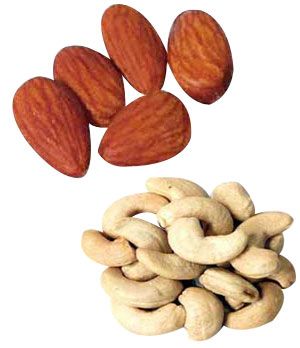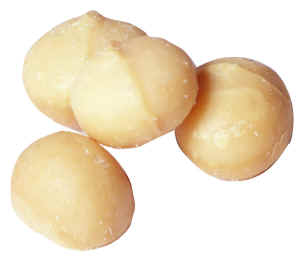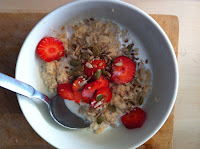So many people have asked me "so how much have you lost?" that I'm feeling under pressure to buy some scales, which regular readers of my blog will know I do not own. Regular readers will also know that the point of this diet or 'lifestyle' as I like to label it, is not strictly about weight loss but is more about the health benefits associated with intermittent fasting.
But Ok, " enough already!!!" I hear you cry..... "How much have you lost?" Well, if you put it like that...... Half a stone in just over two months. (I was able to weigh myself at my Mum's over the weekend while visiting.) Despite not having weight loss as a particular goal (she lies), I have to admit to being quite pleased with this result and it's got me hooked. I've fallen for the feeling of being lighter on my toes and now I'm looking for my next goal.......... Rather than a weight goal, what about dropping another dress size by Christmas? Hmmmm that may be a stretch too far but I'm willing to give it a try ......
This all sounds far too self obsessive, for which I apologise and feel the need to move on!!..... well, not too far on.....!! Until trying this new regime, I had never been that good at self discipline - particularly when it came to food and the odd glass of wine!!..... but I have this time managed to summon, from somewhere, the will power to really make this work.

According to some fascinating research by psychologist Terrie Moffitt of Duke University in Durham, North Carolina, our levels of will power as a child can have profound effects on our lives as adults. Moffitt took 1000 children in New Zealand in the early 1970s and followed them from the age of 3 to their early 30s. As children, they underwent a range of tests around impulsiveness, self control and hyperactivity. The research found that those children with less self control at an early age were more likely to smoke, gain weight and do badly in school. As they caught up with them later in life, they found they were earning on average 20% less than those who were more self-disciplined as children and they were three times more likely to be dependent on alcohol and drugs. They also suffered more ill health in their 30s than their more self-controlled counter parts, who were happier, healthier and more successful.
http://news.sciencemag.org/sciencenow/2011/01/dont-take-that-cookie.html
If you don't have it, though, don't despair as it is apparently possible to train your brain to acquire more will power. According to a paper published in the journal
Psychological Science, it is possible with cognitive training to improve our levels of what they call 'executive control' over all aspects of life, including our diet of course.
http://www.psychologytoday.com/blog/choke/201107/training-the-brain-avoid-temptation
I might just give it a try to see if it can help me drop that additional dress size!!! Watch this space....
Nutrition tip of the day
This one is a bit of a myth buster - believe it or not, there is a food out there which is relatively high in calories and fat but is also, in fact, a bona fide super food. How can this be? Can those two realities co-exist? Indeed they can - we are talking nuts, a much maligned and misunderstood wonder of the edible kind. This must be one of the top foods which I have trouble in convincing people is good for them..... but I'm always up for a challenge so Ill give it another go.....
Nuts contain a range of nutrients which have been linked to lower cholesterol, better heart health, weight control, and even a lower cancer risk. Different nuts offer different benefits and some are a little more 'super' than others......
Almonds
Almonds are the top of the pile (pardon the pun) for fibre.... and are richest in vitamin E. Including soluble f

ibre in the diet has been found to help in regulating bowl function and fighting obesity. Almonds also raise the levels of good bacteria in the gut which improves the immune system. They help to lower bad LDL cholesterol and decrease insulin resistance.
(7 calories per nut)
Cashew nuts
Fabulous for the brain as they are rich in magnesium which can help improve memory and protect against illnesses such as Alzheimer's in later life. They are also rich in iron which can prevent anaemia and zinc which can improve immunity and eyesight. (9 calories per nut)
Brazil nuts
This is the best cancer fighting nut. They are packed with the mineral selenium (in fact one Brazil nut contains more than 100 percent of the daily intake..... so eat in moderation as high levels of selenium can also be harmful!). This humble nut may help prevent cancers such as bone, prostate, and breast cancer. It does this by inhibiting the growth of cancerous cells. (30 calories per nut)
Hazelnuts
High in vitamin E means these nuts are great for maintaining healthy skin and eyesight, reducing the risk of cataracts and macular degeneration. They are also high in mono-unsaturated fats which can lower cholesterol and reduce the risk of cardiovascular disease and type 2 diabetes.
(9 calories per nut)
 Macadamia nuts
Macadamia nuts
These contain the highest levels of 'good' or mono-unsaturated fats which lower bad cholesterol and blood pressure. They're high in calories but they can still be enjoyed in moderation, and it has been found that those who include macadamias in their diets, have reduced their triglyceride and LDL cholesterol levels by nearly 10%.
(20 calories per nut)
Pecan nuts
Great for heart health, high in antioxidants and can help prevent plaque build-up in the arteries. A study by the
Journal of Nutrition found that pecans can help lower LDL cholesterol levels by as much as 33 percent. They are also high in vitamin E.
(11 calories per Pecan half)
Peanuts
Peanuts contain unsaturated fats, magnesium, folate, vitamin E, copper and arginine. Research has found that regular consumption of 16 g of peanut butter reduced the risk of cardiovascular disease in women with Type 2 diabetes. The study, from the Harvard School of Public Health, examined more than 54,000 people for 22 years. Peanuts have also been found to significantly reduce triglyceride levels which are connected to incidences of heart disease. Peanuts have good levels of protein and fibre, essential for a healthy digestive system and lowering cholesterol levels for good heart health. (6 calories per nut & 94 calories per tablespoon of peanut butter)
Pistachio Nuts
Great for calorie counters, with around 3 calories per nut and rich in vitamin B6, which boosts the immune system and lifts the mood. Research has found they reduce the risk of lung cancer in particular. High in anti-oxidants and potassium essential to muscles and the nervous system.
(3 calories per nut)
Walnuts
Walnuts are the best at fighting inflammation as they have the highest levels of omega-3 fatty acids. They also have the most antioxidants of all the nuts, which help protect your body from heart disease, cancer, and premature ageing. They also contain manganese which can reduce PMT symptoms. (13 calories per walnut half)























